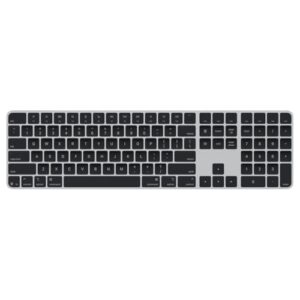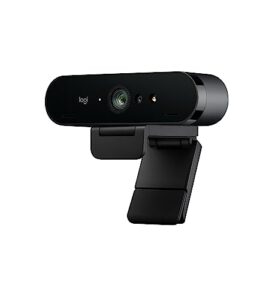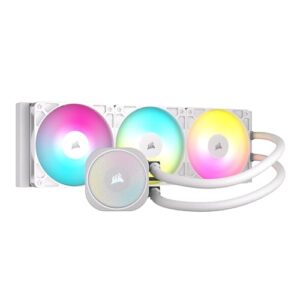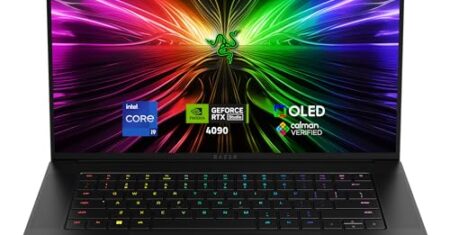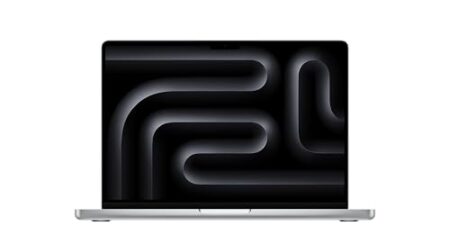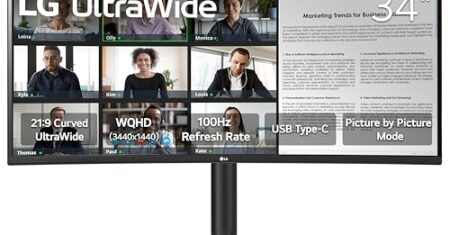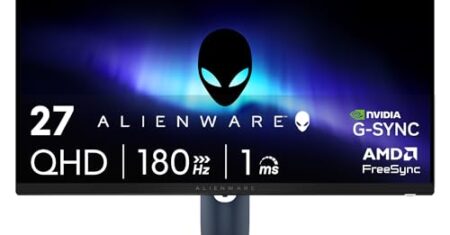Best Curved Monitors in 2025 (Top 10: Sceptre, AOC and More)
Last Updated on August 26, 2025
Find the perfect display for gaming and productivity. Explore our top picks for the best curved monitors to enhance your immersive experience.
Curved monitors pull you in. A 49″ ultrawide can feel like two screens stitched together — without the bezel gap. It changes how you play, work, and watch.
Picture this: you’re juggling three tabs, a spreadsheet, and a video call, all visible at once. Or you’re strapped into a simulator and the wraparound view makes the world feel real. Less window juggling. More focus. And yes, slightly more desk swagger.
Contents
- The Best Curved Monitors
- Samsung Odyssey G9 49" Dual QHD 1000R
- ASUS TUF 34" Ultrawide 165Hz Curved
- AOC 27" 240Hz 0.5ms Curved Gaming Monitor
- Sceptre 34" WQHD Ultrawide 165Hz Monitor
- Sceptre 30" 21:9 Ultrawide 200Hz Monitor
- CRUA 30" Ultrawide 21:9 100Hz Curved
- LG 32" Curved FHD 100Hz FreeSync Monitor
- Samsung 32" S3 FHD 100Hz Curved Monitor
- Z-Edge 24" 1650R Curved 180Hz Monitor
- Sceptre 24" 1080p Curved Budget Monitor
- Final Thoughts on the Best Curved Monitors
- Is a Curved Monitor Worth It? Main Advantages
- How to Choose the Best Curved Monitor
- 1. Higher Curvature Provides Greater Immersion
- 2. Larger Screens Increase Comfort and Productivity
- 3. Choose the Right Resolution for Your Needs
- 4. Ultrawide Monitors Enhance Gaming and Movies
- 5. VA, IPS, and TN Panels: Which Is Best?
- 6. Response Time: Faster Is Better for Gaming
- 7. Refresh Rates: Smooth and Clear Motion
- 8. Extra Features to Look For
- 9. Connectivity Matters
- 10. Built-In Speakers for Convenience
- 11. Ergonomic Adjustments for Comfort
- 12. Consider Desk Space
- 13. Weight and Portability
- 14. Color Profiles for Creative Work
- 15. Wall Mount Compatibility (VESA Standard)
- Check Out the Best Curved Monitors
- Also Check Out Other Helpful Articles
- Video About the Best Curved Monitors
The Best Curved Monitors










Samsung Odyssey G9 49" Dual QHD 1000R
You’ll experience an exceptionally immersive field of view with a 49" 1000R wrap and Dual QHD resolution, making it fantastic for simulators, multitasking, and cinematic gaming. It’s a premium, feature-rich choice if your budget and desk support it.
Pros
- Gigantic 49" Dual QHD (5120x1440) for expansive workspace
- Aggressive 1000R curve that matches human field of view
- 240Hz refresh and 1 ms GtG for high-performance gaming
- DisplayHDR1000 and premium color/HDR capability
Cons
- Large and heavy — needs a strong desk or arm and significant space
- High price and occasional reports of reliability issues
Who should buy this
You should consider the Odyssey G9 if you want the most immersive single-screen experience possible and you have space and budget to support it. It replaces multi-monitor arrays for many users and is especially compelling for sim racing, flight sims, and large multitasking workflows.
Core features combine a massive 5120x1440 Dual QHD canvas with a 1000R curvature that mimics natural vision. The monitor also offers top-tier gaming specs: 240Hz refresh and 1 ms response, along with DisplayHDR1000 for noticeably vivid highlights.
- 49" super-ultrawide with 1000R curvature for full peripheral immersion
- 240Hz refresh with 1 ms GtG latency for competitive and cinematic use
- HDR1000, multiple USB ports, and versatile inputs for high-end setups
Practical notes and caveats
In daily use you’ll likely eliminate bezel gaps and manage multiple windows or fullscreen games with unparalleled scale. However, size and weight demand a large desk and a strong, stable mount. Also factor in the high cost and occasional user reports of hardware issues; if longevity and peace of mind are priorities, check warranty and return options.
A common enthusiastic user comment: "This monitor is breathtaking... Worth every penny!" — which captures the experience for buyers who accept the size and price trade-offs.
ASUS TUF 34" Ultrawide 165Hz Curved
You get an excellent balance of high resolution, fast refresh, and adaptive-sync features that make it strong for both gaming and productivity. It’s a versatile ultrawide that scales well from competitive play to multi-window workflows.
Pros
- Sharp 3440x1440 WQHD resolution on a 34" ultrawide
- 165Hz refresh with 1 ms ELMB for minimal motion blur
- Height adjustable stand and good I/O including USB hub
- DisplayHDR 400 and solid color reproduction for an IPS-like experience
Cons
- Still a large, heavy monitor — requires a robust mount
- 10-bit color at highest refresh rates may be restricted depending on connection
Purpose and who should buy it
You should choose this monitor if you want an ultrawide that can handle gaming and productivity without compromise. The 3440x1440 resolution gives you extra horizontal space for spreadsheets, timelines, and wide game views, while the fast refresh rate keeps motion crisp.
What you get: a 34" 1500R curved panel with a fast refresh and gamer-focused motion technologies. The ASUS ELMB feature pushes effective pixel response down while FreeSync (and G-SYNC compatibility in practice) keeps tearing under control. A useful USB hub and adjustable stand make it comfortable for long sessions.
- 34" 3440x1440 WQHD ultrawide for immersive multitasking
- 165Hz refresh rate with ELMB for sharp motion
- Robust connectivity: DisplayPort, HDMI, and USB ports
Practical insights and trade-offs
In daily use you’ll appreciate the extra horizontal workspace for side-by-side windows and the sense of immersion in racing and simulation titles. Gamers will enjoy the responsiveness at high frame rates; creators will value the additional screen real estate. Keep in mind this is a large monitor that benefits from a strong stand or VESA arm. For professional color work you may still choose a reference-grade panel, but for most mixed-use buyers this is an excellent all-rounder.
A common customer note: the monitor feels "like a massive upgrade" and made switching from standard widescreens a clear improvement for both gaming and productivity.
AOC 27" 240Hz 0.5ms Curved Gaming Monitor
You get textbook competitive performance: extreme refresh rate and near-instant response for minimal input lag and tearing. It’s tailored to players who prioritize speed and smoothness above all else.
Pros
- 240Hz refresh with 0.5ms MPRT for ultra-smooth gameplay
- 1500R curve for immersive play without occupying too much desk space
- Ergonomic stand with height adjustment and VESA compatibility
- FreeSync support reduces tearing with compatible GPUs
Cons
- 1080p resolution on 27" is less pixel-dense than higher-res options
- Color depth and HDR capabilities are limited compared with premium panels
Designed for speed
You should pick this monitor if competitive gaming and low-latency performance top your priority list. AOC tuned this model for responsiveness — you’ll notice smoother aim tracking and reduced motion blur in fast titles.
The core selling points are a 240Hz refresh rate and an ultra-fast 0.5ms MPRT response time. The 1500R curvature adds immersion while keeping the screen footprint manageable. The monitor also includes practical gamer features like Low Input Lag mode and multiple video inputs for consoles.
- 27" curved VA panel with 1920x1080 resolution
- 240Hz refresh via DisplayPort for highest frame rate use
- Height-adjustable ergonomic stand and 3-sided near-frameless design
Practical takeaways and trade-offs
In real-world sessions you’ll gain a clear edge in responsiveness versus 60Hz and 144Hz screens. The trade-off is that pixel density at 1080p on 27" isn’t as crisp as 1440p alternatives — but that’s a deliberate choice to maximize frame rates. If you stream, play competitively, or use multi-monitor setups, this model combines speed and ergonomics at a very competitive price point.
Users often state that it’s a "game-changer" for smoothness and performance, which aligns with the monitor’s focus.
Sceptre 34" WQHD Ultrawide 165Hz Monitor
You get a true 3440x1440 ultrawide experience with fast refresh and strong color for a friendly price. It’s a versatile pick for gamers and productivity users seeking a larger, sharper workspace.
Pros
- 3440x1440 WQHD resolution on a 34" ultrawide
- Up to 165Hz refresh for smooth gameplay
- Good color coverage and built-in LED backlighting accents
- Multiple DisplayPorts and HDMI connections
Cons
- Some users report minor uniformity or faint burn-in after heavy static use
- Black levels and contrast not as strong as high-end VA/OLED panels
Who it's meant for
You should consider this monitor if you want a sharper ultrawide experience than 2560x1080 while staying below flagship prices. The 3440x1440 resolution delivers clearer text and more vertical workspace for productivity and content creation.
Performance-wise it supports up to 165Hz and includes FreeSync for tear-free gaming. Built-in lighting on the back and an attractive design add personality to your setup, while multiple inputs let you connect consoles and PCs simultaneously.
- 34" ultrawide WQHD (3440x1440) with 1500R curvature
- Up to 165Hz refresh and low-latency modes for gaming
- PBP (Picture-by-Picture) and multiple inputs for multitasking
Practical perspective and caveats
In daily use you'll notice a significant improvement in clarity and workspace compared with WFHD ultrawides. Gamers with mid-to-high-end GPUs can enjoy high refresh and crisp visuals. A minority of long-term users have observed subtle burn-in or uniformity issues where static UI elements stay visible; that’s worth considering if your workflow keeps static HUDs or toolbars on-screen for long stretches.
Many customers summarize it as "excellent for the money," which matches the monitor’s balance of resolution, refresh, and price.
Sceptre 30" 21:9 Ultrawide 200Hz Monitor
You get a rare combination of ultrawide 21:9 format and very high refresh rates, which is attractive for gamers who want width without breaking the bank. It’s a compelling value if you can work with 2560x1080 resolution.
Pros
- Up to 200Hz refresh via DisplayPort for fluid motion
- Ultra-wide 21:9 screen for immersive gaming and multitasking
- Multiple HDMI ports and DisplayPort for flexible setups
- Good value compared with higher-priced ultrawides
Cons
- Lower vertical resolution compared to WQHD ultrawides
- OSD/input switching can be clunky and menus deep
What this monitor does well
You should choose this Sceptre if you want an ultrawide canvas with exceptionally high refresh at an attractive price. The 30" 21:9 form factor gives you more lateral space for gaming and productivity, while the high refresh rates ensure smooth action.
Its headline spec is the ability to hit up to 200Hz over DisplayPort (and up to 120Hz over HDMI), which is unusual at this price. That makes it a good match for mid-range GPUs that can push high frame rates at 2560x1080.
- 30" 2560x1080 ultrawide panel with up to 200Hz over DP
- 3x HDMI and 1x DisplayPort for multiple device connections
- Built-in speakers and metal-black finish for a premium look on a budget
Real-world usage and tips
In practice you’ll enjoy the wide field of view in simulation and strategy titles; reviewers note the monitor is a "game-changer" for ultrawide immersion at this price. If you use it for office work, the added horizontal space reduces window switching. Be mindful of the resolution trade-off: text can appear a bit softer than on 1440p displays. Also, consider pairing it with external speakers for richer audio than the built-ins provide.
CRUA 30" Ultrawide 21:9 100Hz Curved
You benefit from a wide 21:9 workspace and a pronounced curve that makes multitasking and media more immersive. It’s a compelling option if you want ultrawide advantages without a high price tag.
Pros
- Affordable 29.5/30" ultrawide form factor
- 1500R curvature enhances immersion and focus
- Good sRGB coverage (advertised 120% sRGB) for vivid colors
- Includes HDMI and DP for flexible connections
Cons
- Lower vertical resolution (2560x1080) than WQHD ultrawides
- Stand quality and ergonomics are basic compared with premium models
Who it's aimed at
You should consider this monitor when you want ultrawide screen real estate for productivity and console gaming at a budget-friendly price. The 21:9 aspect gives you room for side-by-side apps, timelines, and long spreadsheets.
Key strengths include its pronounced 1500R curve and wide color gamut that make media and games pop. The 2560x1080 resolution keeps GPU load modest, which is useful if you don’t have a high-end graphics card.
- 29.5/30" 21:9 display with 1500R curve for a wraparound feel
- 2560x1080 WFHD resolution for balanced performance and clarity
- FreeSync support and both HDMI/DP inputs for console and PC
Practical usage and expectations
In everyday use you’ll notice improved focus when working with multiple documents or windows. For gaming, the curvature helps immersion, and reviewers frequently mention easy console compatibility. If you edit photos or video professionally, the lower vertical resolution and potential calibration needs are the primary compromises.
One satisfied user said: "This monitor is definitely worth it...the value of it is definitely good." That sums up the appeal — strong bang for your buck if you accept the resolution trade-off.
LG 32" Curved FHD 100Hz FreeSync Monitor
You benefit from a large 32" curved screen with 100Hz smoothness and helpful eye-care features for long sessions. It’s a practical and polished option for home offices and mixed-purpose setups.
Pros
- Large 32" curved display increases productivity and immersion
- 100Hz refresh with AMD FreeSync reduces stutter
- Reader Mode and Flicker Safe help reduce eye strain
- OnScreen Control and Auto Input Switch simplify daily use
Cons
- 1080p at 32" results in a lower pixel density
- No height adjustment on the included stand
Purpose and main strengths
You should pick this LG if you want a polished, big curved screen for office work, streaming, and casual gaming. The 100Hz refresh and FreeSync support provide a fluid desktop experience while LG’s software features make everyday use more convenient.
Key selling points include a virtually borderless three-side design, OnScreen Control for quick adjustments, and eye-saver modes that help reduce blue light. The combination of a larger panel and ergonomically simple controls makes it a good pick for shared workstations or a single-screen home office.
- 32" curved FHD display with 100Hz refresh rate
- AMD FreeSync, Dynamic Action Sync, and Black Stabilizer for gaming
- Reader Mode, Flicker Safe, and OnScreen Control for comfort and convenience
Practical expectations and setup tips
In real-life usage this monitor makes multi-window desktops feel roomy, but expect text to appear softer compared with 1440p alternatives. The lack of height adjustment on the stand is a practical compromise; you may want a simple riser or VESA arm if you need precise ergonomics. If your primary tasks involve spreadsheets, documents, or streaming, this is a reliable and attractive option.
One reviewer noted mixed reactions to the curve but many loved the size: "Everyone else in the office wanted it, we all thought it was great." That captures the everyday appeal for teams and individuals alike.
Samsung 32" S3 FHD 100Hz Curved Monitor
You get a large 32" curved screen with a smooth 100Hz refresh that’s ideal for home offices, multimedia, and casual gaming. It’s an affordable, no-fuss option for those who want a larger curved display.
Pros
- Large 32" curved screen for enhanced immersion
- 100Hz refresh rate for smoother desktop and casual gaming
- Built-in speakers and multiple inputs add convenience
- Good price-to-features ratio for general use
Cons
- 1080p resolution on 32" yields lower pixel density
- Speakers are serviceable but lack depth for serious media fans
Overview and target use
You should look at this screen if you want a large curved monitor for general productivity, streaming, and light gaming without spending heavily. It’s a sensible upgrade from older 60Hz displays and brings a more immersive feel to everyday tasks.
The monitor focuses on user convenience: 100Hz smoothness, Game Mode, Eye Saver mode, and built-in speakers simplify setup for living rooms and home offices. You’ll find connections are straightforward and the picture is pleasant for movies and web content.
- 32" curved FHD (1920x1080) display for a larger workspace
- 100Hz refresh and Game Mode for casual play
- Built-in speakers and multiple connectivity options (HDMI, etc.)
Practical expectations
In practice you’ll enjoy the size when working with multiple windows or watching videos, but you should be aware that 1080p at 32" is not very sharp if you sit very close. If you do color-critical work or want high pixel density, consider a higher-resolution alternative. For typical office use, browsing, and console gaming it’s an efficient and budget-friendly option.
One user said: "awesome little screens work perfect for my small office at home," encapsulating the product’s appeal for buyers who need a big, sensible curved display on a budget.
Z-Edge 24" 1650R Curved 180Hz Monitor
You get an immersive curved panel and solid motion performance for a very low price. It’s an excellent entry-level gaming monitor if you want immersive feel without spending much.
Pros
- Very affordable price
- High refresh rate for the class
- Compact 24" curved panel ideal for smaller desks
- Multiple inputs (HDMI / DisplayPort) for consoles and PC
Cons
- 1080p resolution on a 24" may not satisfy pixel-density seekers
- Color accuracy and uniformity are limited compared with premium panels
Who this is for
You should consider this monitor if you want an inexpensive curved gaming screen that prioritizes smooth motion and immersion over color-critical work. It’s well suited for casual FPS players, console gamers working on a budget, and anyone upgrading from an old 60Hz display.
This model emphasizes performance and affordability. Key features include a steep curve that increases perceived immersion and a fast refresh/response spec that reduces motion blur. Take note that the panel targets gamers more than creators, so don’t expect professional color fidelity out of the box.
- 1650R curve that broadens your field of view and improves immersion
- High refresh rate (advertised 180Hz/240Hz variants in some listings) for fluid motion
- 1 ms MPRT / low response time to limit ghosting
Real-world use and limitations
In practical use you'll notice a stronger sense of immersion in racing or first-person games; the curve pulls peripheral vision in. Setup is straightforward — HDMI and DisplayPort cover typical needs and the compact size fits tight desks. However, if you're doing photo or video work, you may need calibration or a different monitor with better color coverage.
A typical user quote sums it up: "Exactly what I wanted. Perfect size and easy to set up." That reflects the core appeal — a no-frills, effective curved monitor that gets you most of the gaming feel without a heavy investment.
Sceptre 24" 1080p Curved Budget Monitor
You’ll get a capable 24" curved monitor at a very low price, suitable for general office work and light gaming. It’s a good plug-and-play choice if you want simple performance without bells and whistles.
Pros
- Extremely affordable price point
- 1800R curvature improves immersion at a small scale
- Multiple inputs (HDMI, VGA) increase compatibility
- Decent image quality for office and casual media
Cons
- 75Hz refresh rate — not ideal for competitive gaming
- Built-in speakers are weak and limited in fidelity
Who should consider this monitor
You should buy this if you need a low-cost curved monitor to upgrade a home office or to use as a secondary screen. It’s targeted at users who prioritize price and basic functionality rather than high-end specs.
Despite the budget tag, the display delivers solid everyday performance: 1080p resolution on a 24" panel, a mild 1800R curve for immersion, and straightforward connectivity that works with most laptops and older desktops.
- 24" curved 1080p display with HDMI and VGA inputs
- 75Hz refresh for slightly smoother motion than 60Hz
- VESA-compatible mounting and compact form factor
Practical notes and limitations
In actual use you’ll find it excellent for spreadsheets, web browsing, and casual media. Gamers seeking ultra-smooth performance or color professionals will feel constrained by the refresh and color capabilities, but most users report satisfaction for day-to-day tasks. One reviewer noted strong compatibility and plug-and-play ease with a MacBook Pro, making it a convenient budget upgrade.
Final Thoughts on the Best Curved Monitors

If you want absolute immersion and the most dramatic single-screen workspace, choose the Samsung Odyssey G9 49" Dual QHD 1000R. You get a true wraparound field of view, Dual QHD clarity, and premium features that make sims, cinematic gaming, and heavy multitasking feel next-level — but make sure you have the desk space and budget for it.
If you want a high-performing ultrawide that balances gaming and productivity, pick the ASUS TUF 34" Ultrawide 165Hz Curved. It delivers fast refresh, adaptive-sync, and a sharper ultrawide canvas for multi-window workflows and smooth gaming without the extreme size or cost of a 49" behemoth.
Is a Curved Monitor Worth It? Main Advantages
A curved monitor is more than just a stylish upgrade — it provides an immersive viewing experience that makes you feel surrounded by the screen. This makes it a great option for entertainment and gaming. The extended field of view enhances gameplay, creating a more engaging environment.
Another advantage is comfort. Studies show that curved screens can be easier on the eyes, reducing fatigue during long hours of use. In addition, the curved design minimizes light reflections, helping you see content more clearly.
How to Choose the Best Curved Monitor
When buying a curved monitor, it’s important to pay attention to key features: curvature, screen size, resolution, panel type, refresh rate, and response time. Let’s break them down:
1. Higher Curvature Provides Greater Immersion
Curvature is measured in millimeters of radius, indicated by the letter “R.” Models typically range from 1000R to 4000R. The smaller the number, the more pronounced the curve. Since the human eye naturally aligns closer to 1000R, monitors with this curvature feel more natural and immersive.
Monitors between 1000R and 1800R provide stronger immersion, while those with higher numbers offer a wider field of view. The best option depends on personal preference and usage.
2. Larger Screens Increase Comfort and Productivity
Screen sizes vary from 21.5” up to massive 49” models. For work, a curved monitor up to 34” is usually enough. For gaming, larger screens deliver a more immersive experience, especially if you sit further away.
Bigger monitors are also excellent for productivity. Some ultra-wide models can replace a dual-monitor setup by splitting the screen into multiple windows, boosting workflow efficiency.
3. Choose the Right Resolution for Your Needs
Resolution plays a huge role in image quality. Common options include:
- Full HD (1920 x 1080): Sufficient for everyday tasks.
- QHD (2560 x 1440): Better clarity than Full HD at an affordable price.
- 4K (3840 x 2160): Ideal for gaming, design, and video editing.
- Ultra WQHD (3440 x 1440): Great for large ultrawide monitors.
- DQHD (5120 x 1440): Equivalent to two QHD monitors side by side.
Higher resolutions deliver stunning visuals but can increase costs.
4. Ultrawide Monitors Enhance Gaming and Movies
Ultrawide monitors offer up to 33% more horizontal space compared to traditional widescreens. With aspect ratios of 21:9 or even 32:9 (super ultrawide), they provide more immersive gameplay and cinematic viewing experiences.
They’re also perfect for multitasking, allowing multiple apps to be displayed side by side without needing a second monitor.
5. VA, IPS, and TN Panels: Which Is Best?
- VA Panels: Strong contrast, vibrant colors, and good for gaming. Best viewed straight on.
- IPS Panels: Excellent color accuracy and viewing angles, popular for creative work.
- TN Panels: Fast response times at a lower cost, but weaker image quality.
Most curved monitors use VA panels, balancing visuals and performance.
6. Response Time: Faster Is Better for Gaming
Response time measures how quickly pixels change color. For competitive gaming, a 1 ms response time is ideal, delivering sharp visuals during fast movements. For work, 4 ms or higher is more than enough.
7. Refresh Rates: Smooth and Clear Motion
Refresh rate indicates how many times the screen updates per second. While office monitors usually run at 60–100 Hz, gaming monitors can reach 144 Hz, 240 Hz, or even higher. A higher refresh rate ensures smoother motion and reduces screen tearing.
8. Extra Features to Look For
Modern curved monitors often include useful technologies such as:
- Flicker-Free & Blue Light Filters: Reduce eye strain.
- FreeSync & G-Sync: Sync monitor refresh rate with your GPU for smoother gameplay.
- Black Stabilizer & Motion Blur Reduction: Improve visibility in dark scenes.
- PIP & PBP Modes: Split the screen for multitasking or connecting multiple devices.
- RGB Lighting: Adds a stylish look to gaming setups.
9. Connectivity Matters
Most curved monitors include HDMI ports, but DisplayPort often delivers better performance, especially for high refresh rates. USB and USB-C connections are also useful for faster data transfer and powering devices.
10. Built-In Speakers for Convenience
Some models come with integrated speakers, saving desk space and removing the need for external audio devices. While they may not replace a full sound system, they’re practical for everyday use.
11. Ergonomic Adjustments for Comfort
Look for models with tilt, height, and swivel adjustments. These ergonomic features make a big difference for users who spend hours in front of their screens.
12. Consider Desk Space
Larger curved monitors, especially ultrawide ones, take up significant space. Always check the dimensions before buying to ensure they fit your desk setup.
13. Weight and Portability
Some curved monitors are heavy and harder to move. If you need to reposition or mount your monitor, make sure your desk or wall mount can support its weight.
14. Color Profiles for Creative Work
If you work with images or design, check if the monitor supports sRGB or Adobe RGB color spaces. sRGB is standard for everyday use, while Adobe RGB offers a wider color range, ideal for printing and professional graphics.
15. Wall Mount Compatibility (VESA Standard)
If you plan to mount your curved monitor, ensure it supports the VESA standard (commonly 75 x 75, 100 x 100, or 200 x 200 mm). This ensures compatibility with most wall mounts and monitor arms.
Check Out the Best Curved Monitors
Still not sure which one to choose? Click the link below to see the best-selling products.
Also Check Out Other Helpful Articles
Take a look at more useful articles that can help you make more informed decisions.
- Best Mac Keyboards in 2025 (Top 9: iClever, Logitech and More)
- Best Webcams in 2025 (Top 10: Ugreen, Logitech and More)
- Best Water Coolers in 2025 (Top 7: Corsair, NZXT and More)
Video About the Best Curved Monitors
We created a video on the topic. Just click to watch.
About the Author
